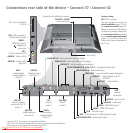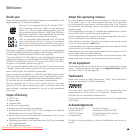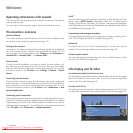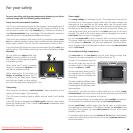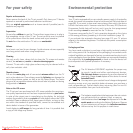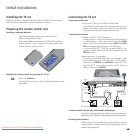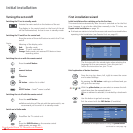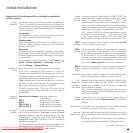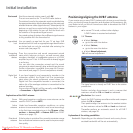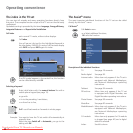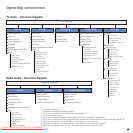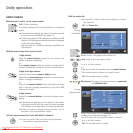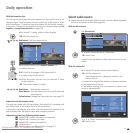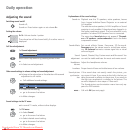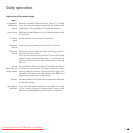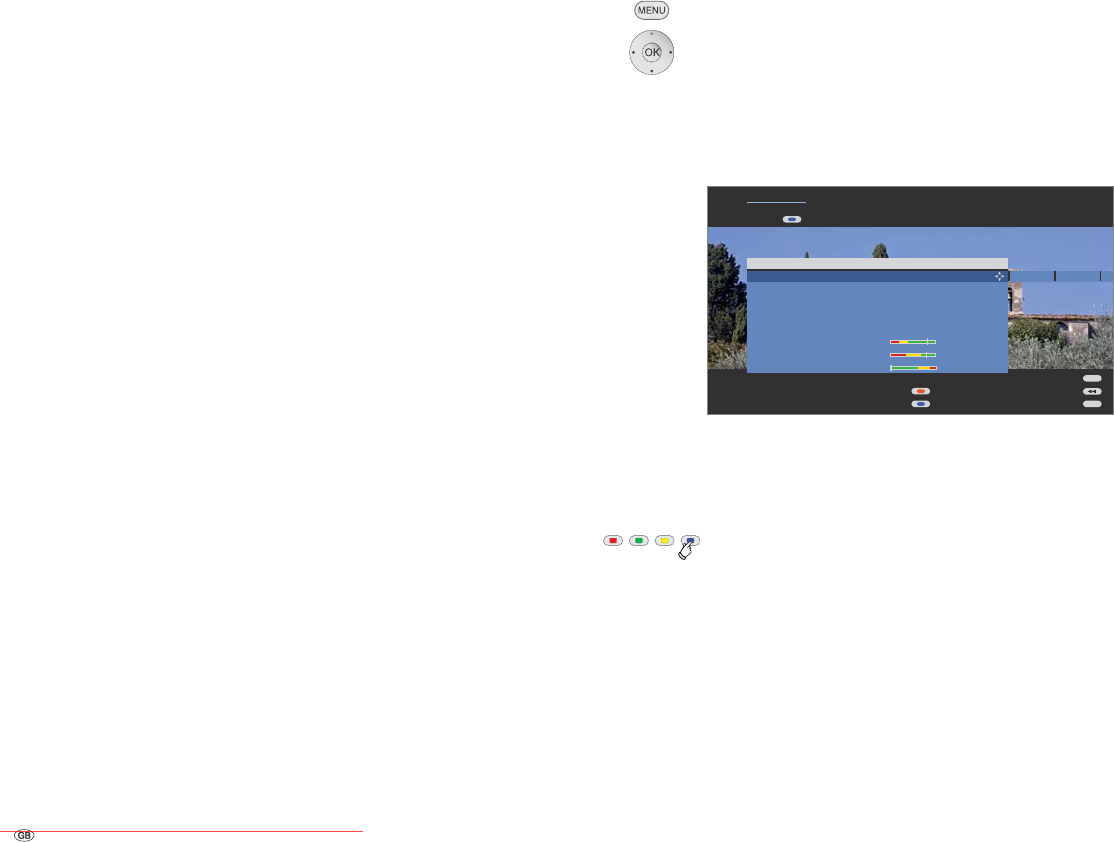
- 14
Positioning/aligning the DVB-T antenna
If you receive one or more DVB-T stations with picture or sound interfer-
ence, you should change the position and alignment of the antenna. Ask
your dealer to tell you which channels are used to broadcast the DVB-T
stations in your region.
➠ In normal TV mode, without other displays.
A DVB-T station is received and selected.
Call TV menu.
Select Settings,
go to the menu line below.
Select Stations,
go to the menu line below.
Select Manual adjustment,
OK call manual adjustment.
The signal source is already on DVB-T due to the station
preselection.
Position and align the antenna in such a manner that
maximum values for C/N and Level are obtained.
Blue button: Start search.
Search for DVB-T stations one after another and compare
values for C/N and Level.
Then position/align the antenna to the weakest station
so that maximum values for C/N and Level are obtained.
Thereafter perform an automatic search for all DVB-T
stations, see page 26.
Explanation of the setting possibilities:
Depending on the selected channel and country the as-
sociated bandwidth will be set automatically.
Start the automatic station search with OK.
The set now searches for TV and DVB radio stations.
The stations found in the automatic search are divided into
the appropriate station blocks depending on the previously
selected antenna cables (signal sources). Subsequently the
stations can only be re-sorted within these blocks. At the
beginning of the station list you will find the block with
the stations of the preferred signal source.
Any mixed sorting of stations from different signal sources
is only possible with the favourites list.
You can specify an age limit for your TV set here. DVB
broadcasts which have an appropriate age identification
are locked and can only be watched after entering the
access code (see page 41).
Then the connection and sound component wizard
starts which helps you to log in, set and connect video
recorders, decoders, a loudspeaker system or a HiFi/AV
amplifier to your TV set. A DVD recorder is already logged
in ex factory.
You can start the connection wizard and the sound
components wizard manually later and add new devices.
Further information is available from page
44
(Connec-
tion wizard) and page
51
(Sound components wizard).
If you have logged in and connected a recorder in the
connection wizard, the Digital Link Plus transmission
starts when the sound component wizard closes. If a
Digital Link Plus compatible recorder is connected, the
station list of the analogue stations is transmitted to the
external recorder.
You can also call Digital Link Plus manually under TV menu
Connections Digital Link Plus.
Explanations of the DVB-T antenna:
With good reception conditions a room antenna can be
used for DVB-T (socket ANT2).
Under less favourable reception conditions, an active
antenna is recommended which must be set accordingly
in the first time commissioning or in the TV menu Con-
nections Antenna DVB Antenna DVB-T (see DVB-T
Antenna on page 13).
If the location is outside of the normal transmission range
then a directional antenna can be used to improve recep-
tion quality.
Initial installation
END
INFO
Manual adjustment
SIgnal source DVB-T DVB-C DVB-S A
Channel E05
Frequency 177.50 MHz
Bandwidth 7 MHz
Name 12 Test
C/N 81
Level 80
BER 0 E-7
Overwrite station
Search
Signal source
Select the area in which you want the broadcaster to search here. You can
use the button to automatically select station by station.
Bandwidth
Start search
Age-related
lock
Connecting
additional
devices
Digital Link
Plus
Room
antenna
Active
antenna
Directional
antenna
Downloaded From TV-Manual.com Manuals



